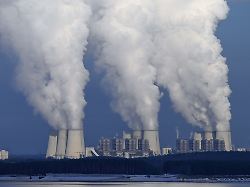Analysis: Number quadrupled
Fossil lobbyists populate COP28
December 5, 2023, 9:57 a.m
The global community is actually running out of time to change course on climate protection. The COP28 conference is rekindling hopes for real change. But after analysis it is pulverized. Because it turns out: the number of lobbyists for coal, gas and oil is four times as high as it was recently.
According to data analysis by activists, at least 2,456 lobbyists for coal, oil and gas are officially accredited at the World Climate Conference in Dubai – four times more than at the meeting in Egypt last year. The evaluation was published by the “Kick Big Polluters Out” coalition, which is supported by Global Witness, Transparency International, Greenpeace and the Climate Action Network, among others. Publicly available data from the UN Climate Secretariat UNFCC were evaluated.
According to the analysis, the lobbyists received more access passes than all delegations from the ten countries most vulnerable to global warming. Somalia, Chad, Niger, Guinea-Bissau, Micronesia, Tonga, Eritrea as well as Sudan, Liberia and the Solomon Islands together only have 1,509 delegates.
David Tong of Oil Change International denounced that the fossil fuel industry and its supporters in many governments continue to invest billions in climate-damaging deals – with disastrous consequences for people and the planet. It is therefore clear to him: “Lobbyists for coal, gas and oil must be kicked out of COP28.”
Shell, Exxon and Co. don’t just observe
Alexia Leclercq from the Start:Empowerment initiative said no one seriously believed that Shell, Chevron or ExxonMobil sent their lobbyists to Dubai just to passively observe the conference. “The toxic presence of big polluters has distracted us for years and prevented us from finding ways to keep fossil fuels in the ground.”
The initiative also pointed out that around eight times as many fossil lobbyists were at the conference of almost 200 states as official representatives of indigenous communities (316). Overall, the UN says it registered a record number of around 97,000 participants for the two-week meeting in the United Arab Emirates.
Leading German climate researcher Ottmar Edenhofer is not surprised by the influence of fossil lobbyists at the largest climate conference of all time. “We have to leave the majority of fossil resources and reserves of coal, oil and gas in the ground, which essentially means that the assets of oil, coal and gas are devalued,” said the director of the Potsdam Institute for Climate Impact Research. “The fact that this won’t just be accepted, but that they will then try to defend themselves against it – that was to be expected.”
Fossil industry is a power factor
Climate economist Edenhofer says: “The influence would also be great if the conference were smaller. The fossil fuel industry is a huge power factor and a major economic factor. That is obvious.”
He sees it as crucial that the prices for the use of climate-damaging energy sources rise so that they become unprofitable. “We need strong international CO2 price signals. That’s why it’s not enough to simply triple the number of renewable energy sources and increase energy efficiency.” The EU’s announcement that it wants to introduce climate tariffs has led to countries such as India, Turkey and the United Arab Emirates now discussing the introduction of CO2 prices.
According to the analysis, there were 636 lobbyists for coal, oil and gas in Sharm-el-Sheikh last year, and 503 in Glasgow in 2021. According to the report, France, for example, has accredited representatives of the TotalEnergies and EDF corporations as part of the delegation and is doing the same Italy with ENI. And the European Union has employees from BP, ENI and ExxonMobil with them.
Joseph Sikulu of the Pacific environmental organization 350.org said: “We come here to fight for our survival – what chance do we have if our voices are stifled by the influence of big polluters? This poisoning of the process must end. “
Only delegates who openly disclosed their connections to interests in the fossil fuel sector were counted for the evaluation. For comparison, the authors relied exclusively on public sources such as company websites, media reports or databases such as InfluenceMap.
